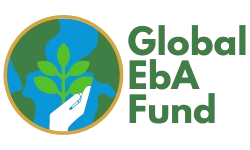Global City Forest Digital Planning Tool – Needs and Gaps Assessment
Project Information
Imagine a world with thriving and biodiverse city forests!
This is the aim of the Global City Forest project. The Global City Forest is a long-term project aiming to increase current and future urban forests in cities to contribute to global temperature reduction and address anthropogenic environmental pressures.
The first phase of the project is to develop a digital planning tool, with the aim to aid cities to plan, monitor, and expand the urban tree canopy at the city and regional scales. The proposed digital planning tool will be an open-source and remote sensing-based, designed to be a versatile and dynamic resource with multiple functionalities as follows:
- Document and assess existing urban tree cover.
- Assess and estimate potential areas to increase urban tree canopies.
- Determine existing and future extents of tree coverage and classify its heat reduction potential.
- Evaluate the coverage and intensity of potential air quality improvement.
- Offer scenario-building based on climate change data and future land cover changes to estimate future urban tree canopy needs and limitations.
- Quantify benefits and co-benefits of urban tree canopies.
- Provide financial valuation of ecosystem services (CO2 sink, and temperature reduction, etc.).
- Monitor overall health of urban tree canopy.
Project Achievements
1. Comprehensive Needs and Gaps Assessment of the Digital Planning Tool: The first step of the project was to conduct a comprehensive needs and gaps assessment of the digital planning tool. This assessment employed a multi-faceted approach, utilising desktop studies to examine existing literature on urban forests, urban heat island effect, and current urban planning tools, combined with a thorough comparative review of existing tools and their functionalities, in relation to the proposed tool. Additionally, a representative sample of 50 cities worldwide was analysed to understand their existing spatial tool capabilities to identify gaps this tool can address.
2. Stakeholder-Driven Validation: An online survey was implemented to gather insights from relevant stakeholders like city officials, urban planners, and environmental specialists. Finally, one expert validation workshop and peer review was conducted to ensure the tool’s usability and identify areas for improvement based on expert feedback.
The findings from this comprehensive assessment will guide the adoption, adaptation, or even integration of Digital Planning Tool with existing tools, ultimately shaping a greener, cooler future.

